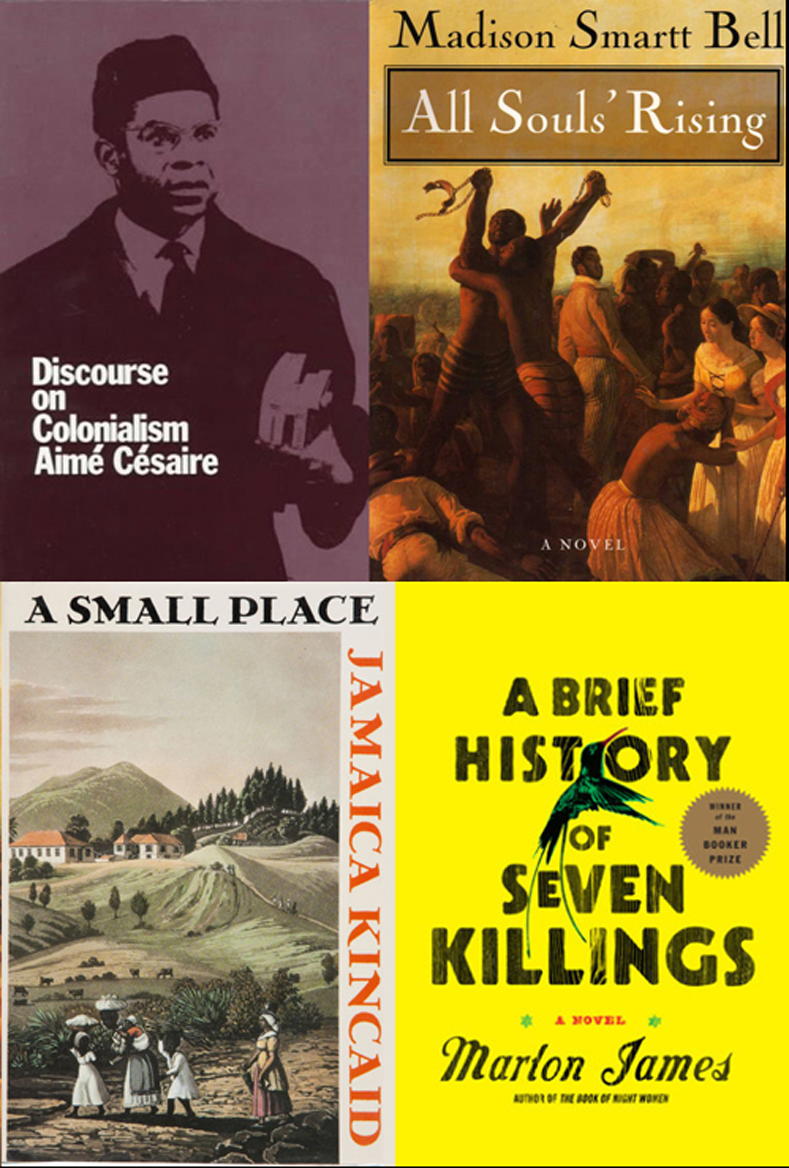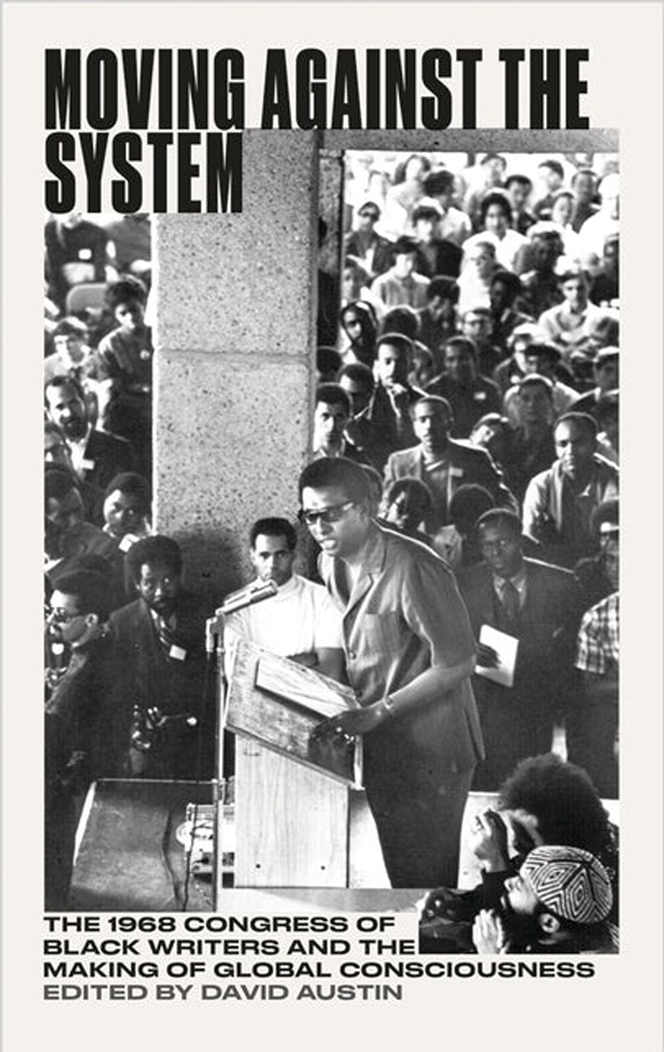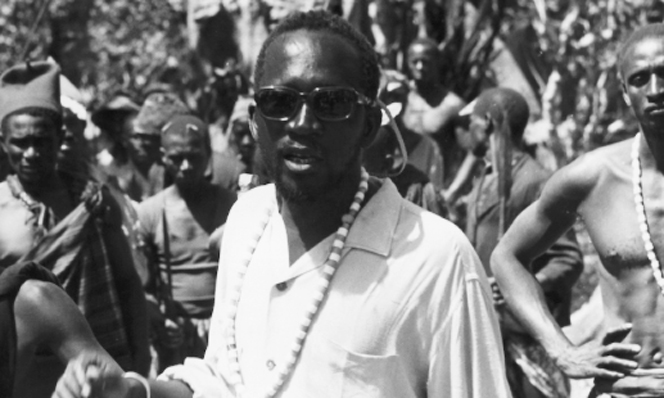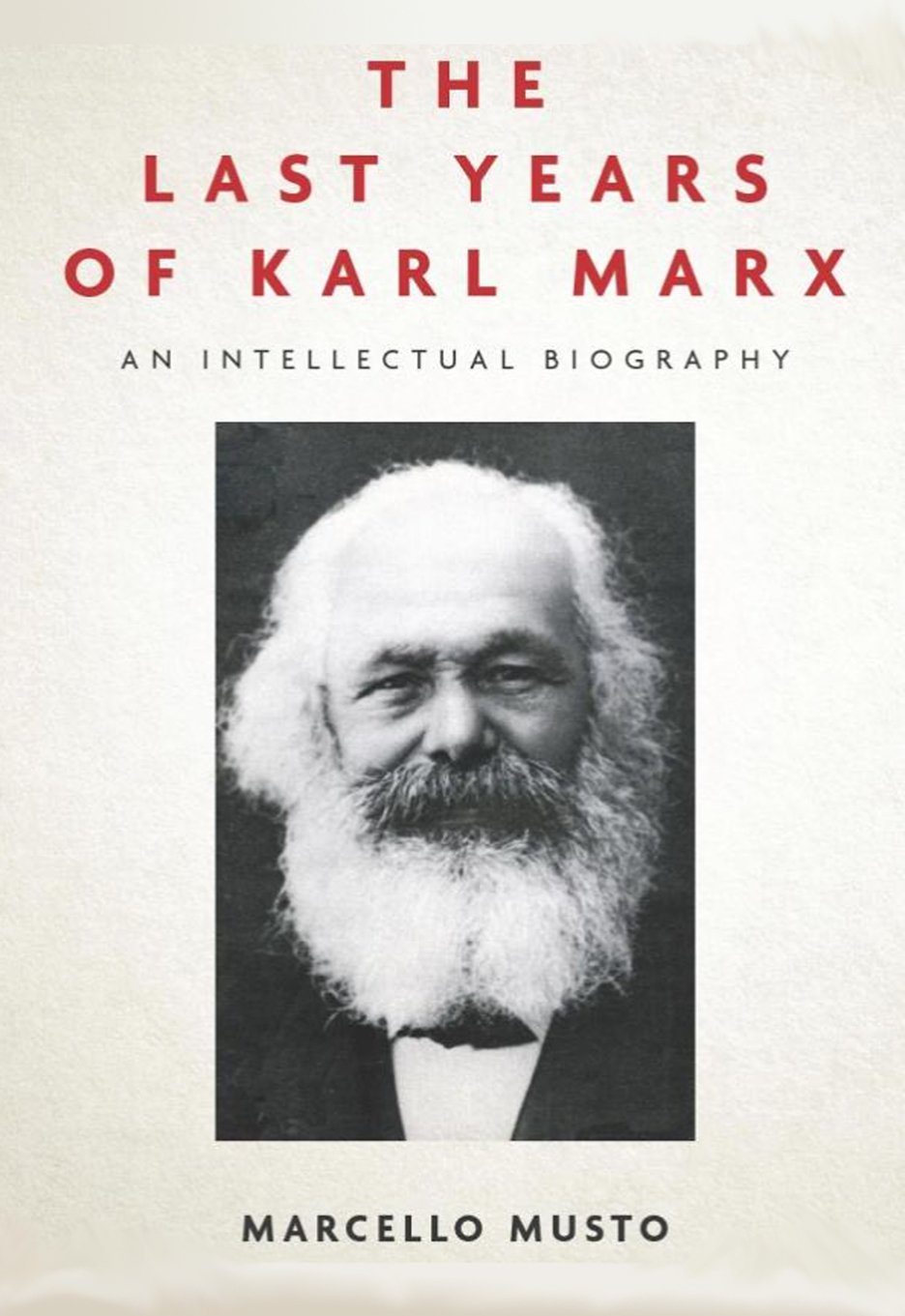Colonialism
Events
-
-

Caribbean Literature: Breaking bonds before and after betrayed revolutions
“And I say that between colonization and civilization there is an infinite distance; that out of all the colonial expeditions that have been undertaken, out of all the colonial statutes that have been drawn up, out of all the memoranda that have been dispatched by all the ministries, there could not come a single human value.”
` —Aimé Césaire
Following our discourse on his groundbreaking discourse we will consider three novels on the colonized Caribbean, long engaged in revolutionary struggle.$85 – $115 -
-

Globalization and Writing
Unwilling, or unable to conform and accept lesser positions in their societies, they remain within their marginality and write their unease in novels which give readers an alternative report of the results of colonization both abroad where the EuroAmerican capitalists have colonized and what consequences that colonization has made for life in the their countries of origin.
$95 – $125 -

Moving Against the System
The People's Forum 320 West 37th Street, New York, NY, United StatesAgainst a backdrop of widespread racism in the West, and colonialism and imperialism in the 'Third World', this group of activists, writers and political figures gathered to discuss the history and struggles of people of African descent and the meaning of Black Power.
$6 – $15 -

Globalization and Writing
Unwilling, or unable to conform and accept lesser positions in their societies, they remain within their marginality and write their unease in novels which give readers an alternative report of the results of colonization both abroad where the EuroAmerican capitalists have colonized and what consequences that colonization has made for life in the their countries of origin.
$95 – $125 -
-

Globalization and Writing
Unwilling, or unable to conform and accept lesser positions in their societies, they remain within their marginality and write their unease in novels which give readers an alternative report of the results of colonization both abroad where the EuroAmerican capitalists have colonized and what consequences that colonization has made for life in the their countries of origin.
$95 – $125 -

Globalization and Writing
Unwilling, or unable to conform and accept lesser positions in their societies, they remain within their marginality and write their unease in novels which give readers an alternative report of the results of colonization both abroad where the EuroAmerican capitalists have colonized and what consequences that colonization has made for life in the their countries of origin.
$95 – $125 -

Globalization and Writing
Unwilling, or unable to conform and accept lesser positions in their societies, they remain within their marginality and write their unease in novels which give readers an alternative report of the results of colonization both abroad where the EuroAmerican capitalists have colonized and what consequences that colonization has made for life in the their countries of origin.
$95 – $125 -

Globalization and Writing
Unwilling, or unable to conform and accept lesser positions in their societies, they remain within their marginality and write their unease in novels which give readers an alternative report of the results of colonization both abroad where the EuroAmerican capitalists have colonized and what consequences that colonization has made for life in the their countries of origin.
$95 – $125 -
-

Globalization and Writing
Unwilling, or unable to conform and accept lesser positions in their societies, they remain within their marginality and write their unease in novels which give readers an alternative report of the results of colonization both abroad where the EuroAmerican capitalists have colonized and what consequences that colonization has made for life in the their countries of origin.
$95 – $125 -

Globalization and Writing
Unwilling, or unable to conform and accept lesser positions in their societies, they remain within their marginality and write their unease in novels which give readers an alternative report of the results of colonization both abroad where the EuroAmerican capitalists have colonized and what consequences that colonization has made for life in the their countries of origin.
$95 – $125 -

Globalization and Writing
Unwilling, or unable to conform and accept lesser positions in their societies, they remain within their marginality and write their unease in novels which give readers an alternative report of the results of colonization both abroad where the EuroAmerican capitalists have colonized and what consequences that colonization has made for life in the their countries of origin.
$95 – $125 -

Globalization and Writing
Unwilling, or unable to conform and accept lesser positions in their societies, they remain within their marginality and write their unease in novels which give readers an alternative report of the results of colonization both abroad where the EuroAmerican capitalists have colonized and what consequences that colonization has made for life in the their countries of origin.
$95 – $125 -
-

Globalization and Writing
Unwilling, or unable to conform and accept lesser positions in their societies, they remain within their marginality and write their unease in novels which give readers an alternative report of the results of colonization both abroad where the EuroAmerican capitalists have colonized and what consequences that colonization has made for life in the their countries of origin.
$95 – $125 -
-

Final Friday Film: Camp de Thiaroye
The People's Forum 320 West 37th Street, New York, NY, United StatesIn Camp de Thiaroye the tirailleurs use the traditional, highly rhetorical, almost theatrical, mode of debate of their various societies, but adapt this ritual form to the only language they have in common: the pidgin which the French insultingly call “petit nègre”, a language which is both a result and a tool of colonial exploitation. Here it is revealed as having a potential for eloquence, allowing it to become a moving medium for the articulation of feelings, needs, grievances and resistance, and thus ultimately for the development of the tirailleurs‘ collective political awareness and consciousness of themselves as Africans.
$6 – $15 -
-

The Last Years of Karl Marx
Online: Zoom link will be provided to registered participantsWith The Last Years of Karl Marx, Marcello Musto claims a renewed relevance for the late work of Marx, highlighting unpublished or previously neglected writings, many of which remain unavailable in English. Readers are invited to reconsider Marx's critique of European colonialism, his ideas on non-Western societies, and his theories on the possibility of revolution in noncapitalist countries.
$7 – $11
